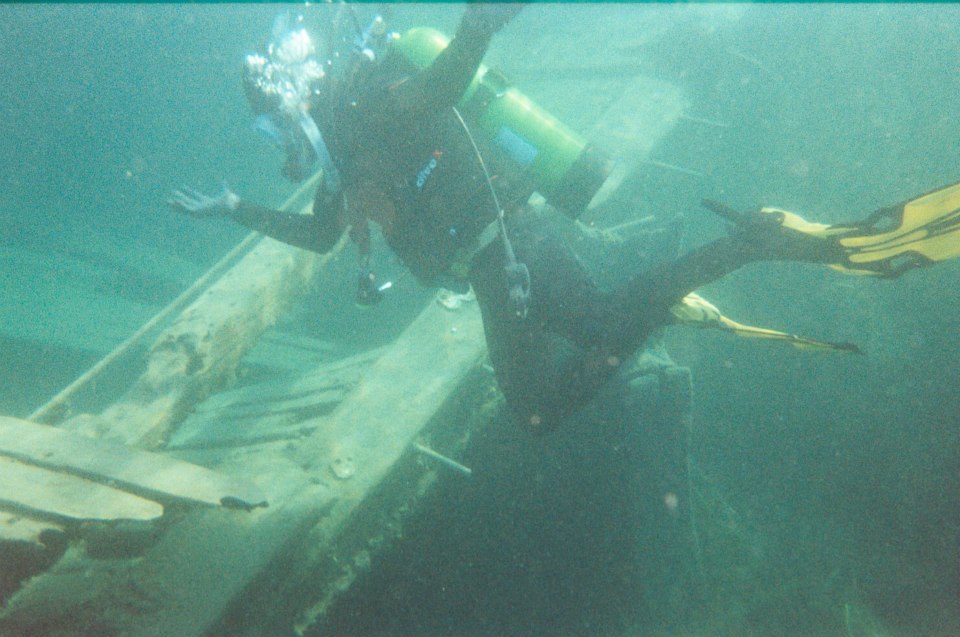Why do we feel refreshed when we splash our faces with cold water? How do freedivers reach depths that can crush our lungs, and stay there for longer than they can on land? How are our bodies so perfectly buoyant that we can float on the surface yet walk on the ocean floor? As an experienced swimmer, advanced PADI scuba diver, novice freediver, former lifeguard, and former competitive waterpolo player, I have water in my blood. I love exploring the oceans, diving, and swimming, and managed to slip an oceanic project into my PhD. From coral to shipwrecks, whales to plankton, octopi to dolphins, life is stranger than fiction in a water-world we know very little about.
Humans have evolved for locomotion. We crawl, walk, and run in four directions on two-dimensional surfaces. We can change our altitude by jumping, which is quite temporary and has a small range, or climbing, which is limited by the topography of our environment. However, we are smart. We build tools to allow us to hover (hot air balloons, helicopters), fly (planes), dive (submarines), and float (ships). While these wonderful breakthroughs in technology allow us to explore our environment better that the animals that have evolved for it, they still do not enable us to immerse ourselves in it to the same extent. Diving was my first opportunity to understand three-dimensional freedom of movement because when you are underwater, buoyancy trumps gravity.
At the surface of the ocean, the pressure we feel is from the atmosphere. When we go underwater, the pressure of the water increases so fast that at only 10m deep, it already doubles, which means the volume of air in our lungs is halved. So, why don’t our lungs collapse? Interestingly enough, the lungs fill with blood (similar to an erection), which prevents them from imploding. Once you’re underwater, every breath you take makes your body balloon up during inhalation, and become denser when you exhale. This makes you to float to the surface or sink to the bottom, which allows you to change your depth by simply using your lungs! Imagine a world where your lungs doubled up as a means of vertical locomotion, how crazy would that be? And yet fish do this all the time. When diving, I inhale to move upwards and exhale to move downwards. This helps me navigate when exploring my aquatic environment. We are intimately connected to the water that flows through our veins and our mammalian dive reflex. However, we’re only at the tip of the iceberg and have so much more to discover.
“Something, most certainly, happens to a diver’s emotions underwater. It is not merely a side effect of the pleasing, vaguely erotic sensation of water pressure on the body. Nor is it alone the peculiar sense of weightlessness, which permits a diver to hang motionless in open water, observing sea life large as whales around him; not the ability of a diver, descending in that condition, to slowly tumble and rotate in all three spatial planes. It is not the exhilaration from disorientation that comes when one’s point of view starts to lose its “lefts” and “down” and gains instead something else, a unique perception that grows out of the ease of movement in three dimensions. It is not from the diminishment of gravity to a force little more emphatic than a suggestion. It is not solely exposure to an unfamiliar intensity of life. It is not a state of rapture with the bottomless blue world beneath one’s feet…it is some complicated mix of these emotions, together with the constant proximity of real terror.”
– Barry Lopez, About This Life

Inspecting a little fish in Tobermory, Ontario

Winning the Ontario waterpolo championships for Carleton University